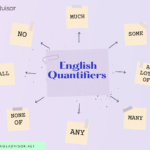Both, Neither, Nor and So. English ESL Worksheets. English grammar with exercises. Free eBook and Free printable PDF
Both, Neither, Nor and So

Both, Neither, Nor and So
Both, neither, so and nor are all adverbs which we use to show how two things are related to each other or to other ideas.
| Expression | Example |
|---|---|
| both … and … | I like both cats and dogs. |
| so | Richard likes cats. So do I. |
| neither/nor | Richard doesn’t like cats. Neither do I./Nor do I. |
| neither … nor … | I like neither cats nor dogs. |
BOTH
We often use both to show that two things are the same in some way. We can also use both as a plural pronoun which refers to two previously mentioned things, typically nouns and adjectives.
We had enough time to both study and play with our friends.
NEITHER
We use neither to show that two things are not possible or valid. It can also be a singular pronoun.
The staff told us that guests can neither eat nor drink while in the pool.
SO
We can use so to add more examples or information to a positive statement. We us SO + AUXILIARY VERB + SUBJECT.
Richard learned to ride a bike on this street and so did Sean.
NOR
Nor is like an opposite to so which is used to add more examples or information to a negative statement. We use NOR + AUXILIARY VERB + SUBJECT.
I am not interested in your product, nor is anyone else in this office.

BOTH, NEITHER, NOR AND SO
Exercises
BOTH – NEITHER – NOR
EXERCISE 1.
Re-write the following sentences using
Both…… / Neither……. Nor…..
e.g. Mary and I want to go to the movies.
Both Mary and I want to go to the movies.
- The subway is slow and so is the tram.
- I can afford a return ticket. I can’t afford a single ticket.
- The soup was delicious and the cake was too.
- My dad isn’t very strict and neither is my mum.
- Robin Hood is innocent but he is also guilty.
NEITHER OF / BOTH OF
EXERCISE 1.
Using either neither of or both of to fill in the gaps.
e.g. Both of the Chinese chefs can speak Chinese.
Neither of the Chinese chefs can speak English.
- The Ritz and the Hilton are two of the most famous hotels in the world. _______ the hotels are famous.
- Linate and Malpensa were closed. __________ the airports was open.
- The blue coat and the brown coat are really expensive. ________ the coats are expensive.
- I asked the air hostesses to help me, but they were busy. ______________ them could help me.
- John and Mike can play football. __________ them are very good.
- I’ve got two Australian friends. __________ are from Melbourne.
- There were two receptionists. ___________ them could speak Russian.
- I could pass ____________ the exams if I studied hard enough.
- Jackie and Sam want to go to the beach this weekend. _________ them want to go.
- Sandra and Cecilia didn’t know about your party last night. _________ them knew about the party.
- You and I love eating pasta. ___________ us love eating pasta.
- We haven’t seen Paul for ages. ___________us have seen Paul for ages.
SO / NEITHER
We can use auxiliary verbs with so and neither when we don’t want to repeat something.
e.g. I passed the exam and so did Tom.
I can’t remember his name. Neither do I.
EXERCISE 1.
Give the correct response to the sentences below using either so or neither.
e.g. I can swim. So can I.
John can’t cook. Neither can I.
- I’m hungry. ______________.
- He can’t go to the party. _____________.
- We’ve just had lunch. _______________.
- I can’t go to the theatre. ___________.
- They are not Japanese. ____________.
- I often go to the cinema. ___________.
- I’ve never been to Jamaica. __________.
- She likes swimming. ______________.
- I don’t like hot weather. ______________ .
- Tom can’t type. __________.
- I’m not married. _______________.
- The children are happy. _____________.
- I haven’t studied very hard. ________________.
- We really enjoy horse riding at the weekend. _____________.
- Margaret is very shy. ______________.
- Juliet and Janet are going to the beach this summer. ______________.
- We have just come back from Rome. ________________.
- Penny often finds it difficult to understand French. _______________.

All downloads are in PDF format
BROWSE THE EBOOK ONLINE OR DOWNLOAD THE PDF FOR FREE






